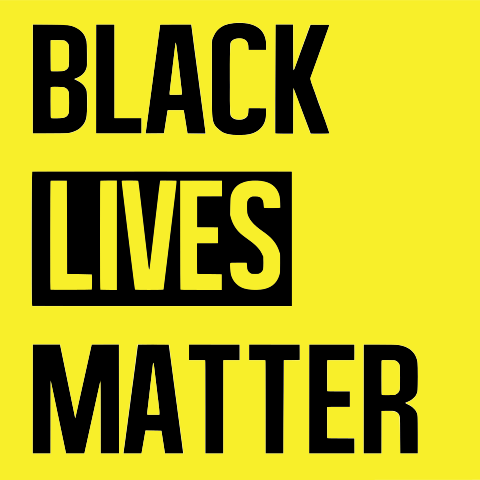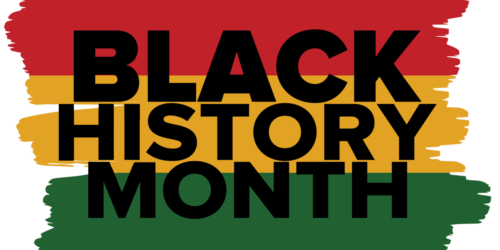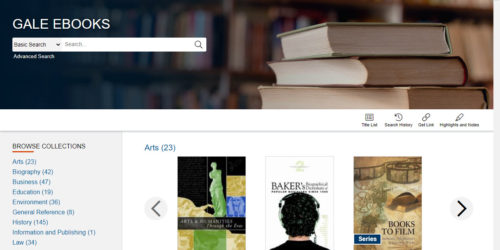Solidarity, Commitment, and Resources from Your Library

Content warning: This post mentions violence against BIPOC and systems of oppression, especially in the United States, colleges, and libraries.
Solidarity
The recent killings of Breonna Taylor, George Floyd, and Ahmaud Arbery have brought police brutality against Black people under greater scrutiny. Violent exploitation of Black lives is foundational to the United States and the ongoing murders are a consequence of centuries of systemic white supremacy in this country. We in the library want you to know that we recognize the ways our institution upholds white supremacy. We are committed to standing in solidarity with Black folx, now and always. We protest against these injustices with you. We believe that Black Lives Matter.
We also know that many of us hold privileges in our whiteness, in our level of education, and in our income. We want to continue the work of dismantling the systems that unfairly favor some and disadvantage others. We won’t always get this right, but we are committed to moving forward in solidarity and improving our ways.
The library also defends your privacy and your right to access information. If you want to learn more about why the protests are happening, or find out about the history of racism in America, please know that we will help you find any information you seek and will keep all inquiries confidential. You can always Ask a Librarian about any topic and we will do our best to connect you with information.
There are many feelings that this civil unrest will bring up, and we’d like to also direct you to our colleagues in the Counseling and Health Center and some resources they have shared in a recent newsletter: List of BIPOC health care providers from the NAACP, Black mental health resources online from Self.com, mashable.com, and Dr. M. Sophia Aguirre.
Commitment
This post needs to include an acknowledgment: Libraries as an institution in the United States are steeped in whiteness. According to an American Library Association (ALA) Member Demographics Survey from 2017, white folx made up 86.7% of people who responded. We see this statistic reflected in the overwhelming whiteness of our library’s employees. This means that we have to take a pointed, direct look at ourselves, as library workers, and ask ourselves: How is white supremacy part of library systems and what will we do to dismantle it?
We know that libraries have gotten this wrong in a lot of ways in the past and present. American collections disproportionately feature works that are Western, Christian, and male-authored. When searching Clark Libraries materials for literature and “Native American”, we get 205 results, 73 of which are physical books in our collection. Compare that to a search for literature and Shakespeare, we get 973 results, 216 of which are physical books in our collection.
Libraries also have a history of being sites for police and security violence. According to an article by Selman et al. people who are “Black, Indigenous, poor, and gender non-conforming” are more likely to be targeted as suspicious in libraries. We have an obligation to interrogate why library workers want to police these patrons’ presence and to dismantle this impulse.
In addition to these foundational faults, libraries often see themselves as above criticism due to a phenomenon called vocational awe, coined by Fobazi Ettarh, a librarian at Rutgers. In her article, she defines vocational awe as “the set of ideas, values, and assumptions librarians have about themselves and the profession that results in notions that libraries as institutions are inherently good, sacred notions, and therefore beyond critique.” This problematic viewpoint often gives libraries the false impression that we are exempt from reviewing our practices from a critical lens.
So what do we do with this? Clark Libraries want to share a commitment to righting these wrongs and taking action against racist systems present within our own institution.
Individually and departmentally, we commit to increased training in issues of power, privilege, and inequity (PP&I) beyond the one required per year for all Clark employees. We commit to integrating anti-racism into our practices by using our weekly department meetings to discuss readings on racial equity. Some ideas we have for other commitments are a diversity audit of our collections, collection development in response to those audits, a critical and equity-focused look at our library policies, and culturally-responsive teaching practices.
We also need accountability. We will work to create accountability partners within and outside of the library. We will ask for your feedback. We need to hear from our community, including our students, on how we are doing. We will listen. We will change our ways.
Resources
- Violence Against Black Bodies: An Intersectional Analysis of How Black Lives Continue to Matter (ebook from CCL)
- Exceptional America: what divides Americans from the world and from each other (ebook from CCL)
- I am Not Your Negro (streaming video from CCL)
- Disrupting Whiteness in Libraries and Librarianship: A Reading List (from the University of Wisconsin-Madison)



